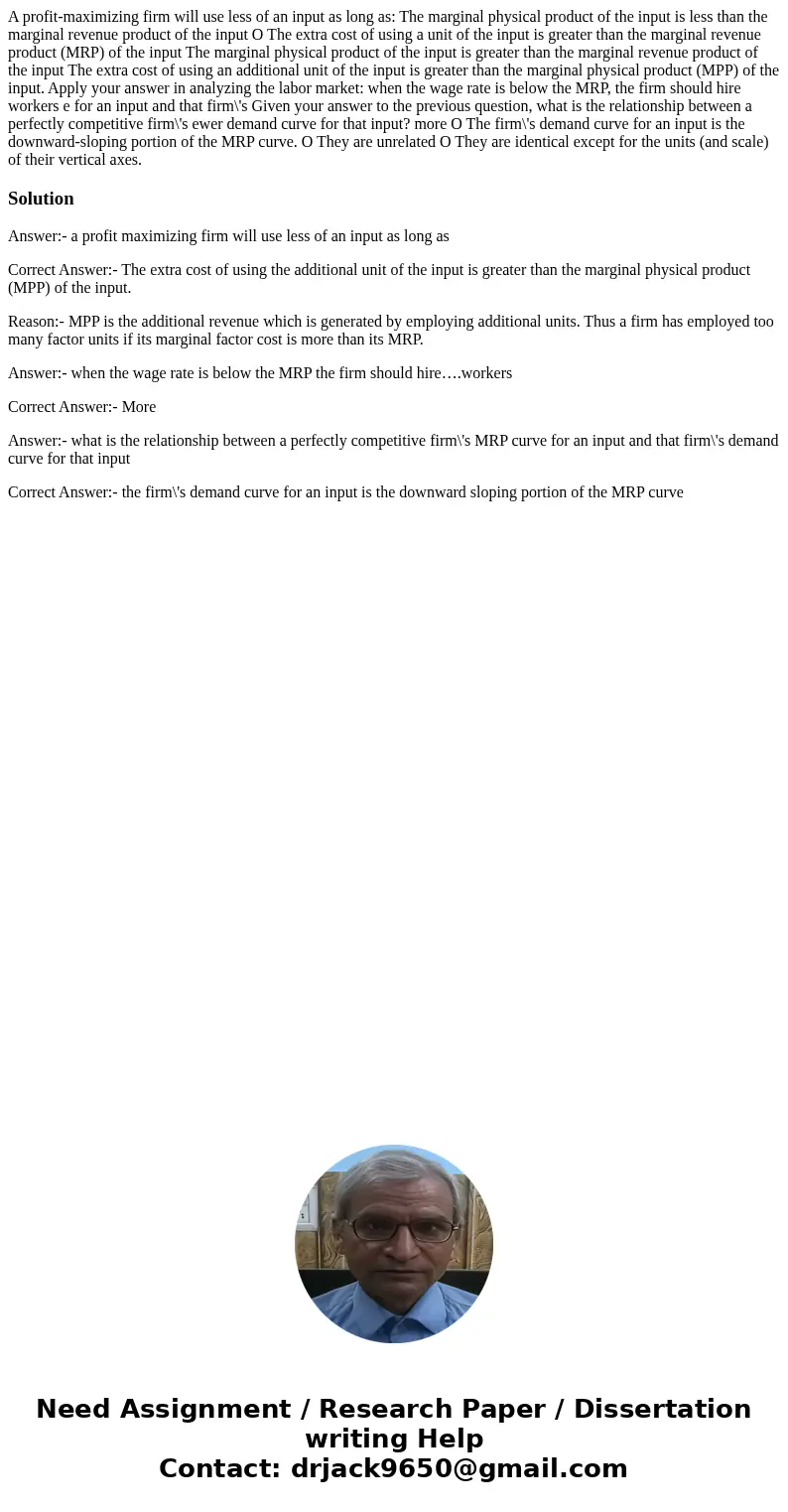A profitmaximizing firm will use less of an input as long as
A profit-maximizing firm will use less of an input as long as: The marginal physical product of the input is less than the marginal revenue product of the input O The extra cost of using a unit of the input is greater than the marginal revenue product (MRP) of the input The marginal physical product of the input is greater than the marginal revenue product of the input The extra cost of using an additional unit of the input is greater than the marginal physical product (MPP) of the input. Apply your answer in analyzing the labor market: when the wage rate is below the MRP, the firm should hire workers e for an input and that firm\'s Given your answer to the previous question, what is the relationship between a perfectly competitive firm\'s ewer demand curve for that input? more O The firm\'s demand curve for an input is the downward-sloping portion of the MRP curve. O They are unrelated O They are identical except for the units (and scale) of their vertical axes. 
Solution
Answer:- a profit maximizing firm will use less of an input as long as
Correct Answer:- The extra cost of using the additional unit of the input is greater than the marginal physical product (MPP) of the input.
Reason:- MPP is the additional revenue which is generated by employing additional units. Thus a firm has employed too many factor units if its marginal factor cost is more than its MRP.
Answer:- when the wage rate is below the MRP the firm should hire….workers
Correct Answer:- More
Answer:- what is the relationship between a perfectly competitive firm\'s MRP curve for an input and that firm\'s demand curve for that input
Correct Answer:- the firm\'s demand curve for an input is the downward sloping portion of the MRP curve

 Homework Sourse
Homework Sourse